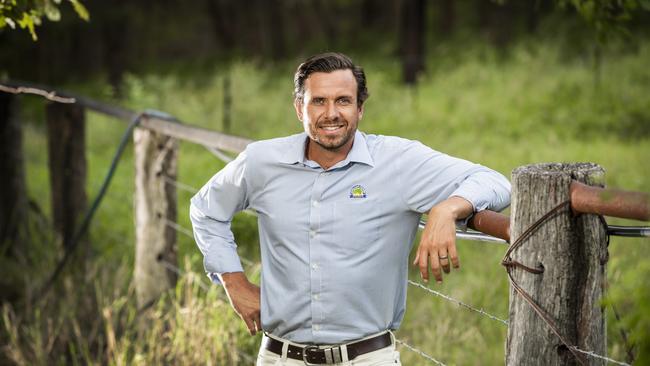Growing need for young on the land
The head of one of Australia’s biggest family-owned beef producers says more needs to be done to recruit younger people to work in the $72bn agriculture sector.

The head of one of Australia’s biggest family-owned beef producers says more needs to be done to recruit younger people to work in the $72bn agriculture sector.
NSW is supplying more than half of the new graduates in the industry, which Australian Country Choice chief executive Anthony Lee said was partly because agricultural science was compulsorily taught in state high schools.
Brisbane-based Mr Lee said agricultural and food studies, which is already part of the national curriculum, should be mandatory in schools to give younger children a taste of the growing industry.
Speaking at the Rural Press Club of Queensland’s Ekka Breakfast, Mr Lee said agriculture provided more than just jobs in paddocks and had places for the country’s brightest minds working right throughout the industry chain in finance, science, analytics and management.
He said the number of on-farm and off-farm jobs continued to grow but the number of graduates entering the industry remained constant, putting the industry “at a crossroads”.
“We are charging ahead towards becoming a $100bn industry by 2030 but we are compromised by a limited ability to find a suitable workforce,” Mr Lee said.
“The recent pandemic effectively terminated agriculture’s international labour pipeline yet the agricultural workforce demand continues to grow. At the same time, it is changing to require greater skills due to evolving technology.”
Organisations exist to divert younger workers into the sector, but Mr Lee said there should be central overseeing recruitment funded by levies from rural development organisations.
He said the Primary Industries Education Foundation Australia was the best-placed body to lead the push, but it needed better funding and sector participation.
“This single, focused body, must be the conduit between industry, government and the education institutions,” he said.
Mr Lee said Australia’s increasing urbanisation was a barrier that could be overcome if schools in the cities taught agriculture from a young age and incorporated it into early maths, science and English lessons.
Agriculture and food studies became compulsory for year 7 and 8 students in NSW public high schools in 2019 but across most of the country it is offered as a voluntary elective, and sometimes not until year 10.
“Increasing numbers of young Australians do not have any connection to the country,” Mr Lee said, adding: “They are growing up without experiencing the joy the bush can offer and the knowledge it brings.”
Mr Lee’s Australian Country Choice employs 1500 people and its holdings include 1.82 million hectares across 42 western Queensland properties, three feedlots and 300,000 cattle.




To join the conversation, please log in. Don't have an account? Register
Join the conversation, you are commenting as Logout